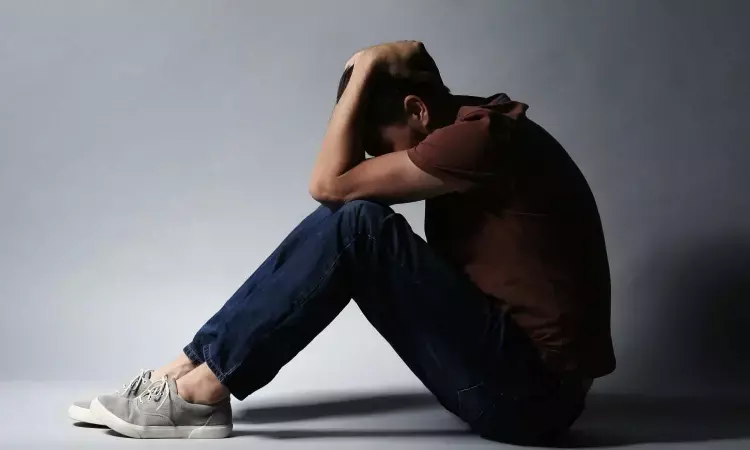- Home
- Medical news & Guidelines
- Anesthesiology
- Cardiology and CTVS
- Critical Care
- Dentistry
- Dermatology
- Diabetes and Endocrinology
- ENT
- Gastroenterology
- Medicine
- Nephrology
- Neurology
- Obstretics-Gynaecology
- Oncology
- Ophthalmology
- Orthopaedics
- Pediatrics-Neonatology
- Psychiatry
- Pulmonology
- Radiology
- Surgery
- Urology
- Laboratory Medicine
- Diet
- Nursing
- Paramedical
- Physiotherapy
- Health news
- Fact Check
- Bone Health Fact Check
- Brain Health Fact Check
- Cancer Related Fact Check
- Child Care Fact Check
- Dental and oral health fact check
- Diabetes and metabolic health fact check
- Diet and Nutrition Fact Check
- Eye and ENT Care Fact Check
- Fitness fact check
- Gut health fact check
- Heart health fact check
- Kidney health fact check
- Medical education fact check
- Men's health fact check
- Respiratory fact check
- Skin and hair care fact check
- Vaccine and Immunization fact check
- Women's health fact check
- AYUSH
- State News
- Andaman and Nicobar Islands
- Andhra Pradesh
- Arunachal Pradesh
- Assam
- Bihar
- Chandigarh
- Chattisgarh
- Dadra and Nagar Haveli
- Daman and Diu
- Delhi
- Goa
- Gujarat
- Haryana
- Himachal Pradesh
- Jammu & Kashmir
- Jharkhand
- Karnataka
- Kerala
- Ladakh
- Lakshadweep
- Madhya Pradesh
- Maharashtra
- Manipur
- Meghalaya
- Mizoram
- Nagaland
- Odisha
- Puducherry
- Punjab
- Rajasthan
- Sikkim
- Tamil Nadu
- Telangana
- Tripura
- Uttar Pradesh
- Uttrakhand
- West Bengal
- Medical Education
- Industry
Childhood Physical Assault Linked to Increased Risk of Mental Illness later

Childhood physical assault is a distressing reality for many, and its long-lasting impact on mental health is a cause for concern. However, there has been limited research on the specific patterns of mental illness that survivors of such assaults experience.
A recent study published in JAMA Network Open by Etienne Archambault and colleagues aimed to shed light on this issue by investigating the risk of developing mental illness among children who have been victims of physical assault, compared to those who haven't. Conducted in Ontario, Canada, this population-based matched cohort study analyzed data from 21,948 children unexposed to assault and 5,487 children exposed to assault between 2006 and 2014.
● The study revealed that children who had experienced assault were at a significantly higher risk of receiving a mental illness diagnosis compared to their non-assaulted counterparts.
● More than one-third of the exposed children (38.6%) received a health record diagnosis of mental illness, compared to 23.4% of unexposed children.
● The overall adjusted hazard ratio was 1.96, indicating that assaulted children were nearly twice as likely to develop a mental illness.
● The timing of the impact was notable. The greatest risk of mental illness was observed in the first year following the assault, with an adjusted hazard ratio of 3.08.
● This underscores the critical need for early intervention and support to address the mental health needs of assaulted children promptly.
● The study also found that nonpsychotic disorders were the most common type of mental illness in both groups.
● Moreover, initial mental illness diagnoses occurred in an acute care setting for a higher percentage of exposed children (14.0%) compared to unexposed children (2.8%). This indicates that assaulted children were more likely to present to acute care for mental health issues.
These findings emphasize the urgent need for targeted interventions and support systems for children who have experienced physical assault. Recognizing the heightened risk and the specific time frame in which mental health issues tend to arise can guide healthcare professionals and caregivers in providing timely assistance.
The study's authors stress the importance of early intervention and support for the mental health of assaulted children, especially within the crucial first year following the traumatic event. This research underscores the need for a comprehensive approach to address the
long-term consequences of childhood physical assault on mental well-being. These findings underscore the importance of proactive measures to protect and nurture the mental health of children who have experienced physical assault.
Reference:
Archambault, É., Vigod, S. N., Brown, H. K., Lu, H., Fung, K., Shouldice, M., & Saunders, N. R. (2023). Mental illness following physical assault among children. JAMA Network Open, 6(8), e2329172. https://doi.org/10.1001/jamanetworkopen.2023.29172
Dr Kamal Kant Kohli-MBBS, DTCD- a chest specialist with more than 30 years of practice and a flair for writing clinical articles, Dr Kamal Kant Kohli joined Medical Dialogues as a Chief Editor of Medical News. Besides writing articles, as an editor, he proofreads and verifies all the medical content published on Medical Dialogues including those coming from journals, studies,medical conferences,guidelines etc. Email: drkohli@medicaldialogues.in. Contact no. 011-43720751


